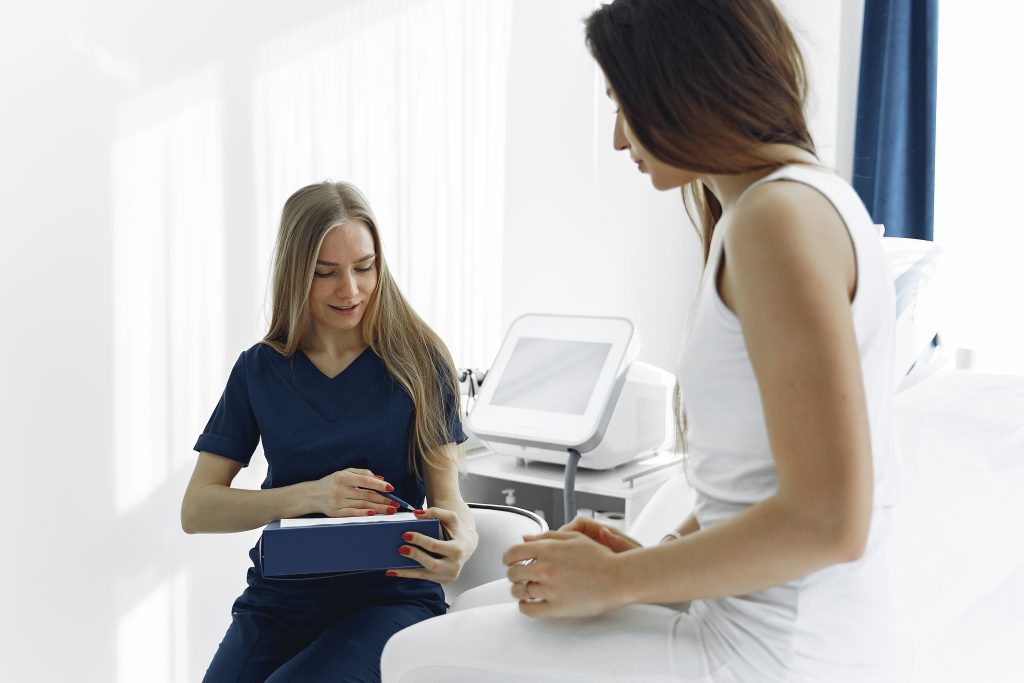By Allison Sadlier // SWNS
NEWS COPY W/ VIDEO + INFOGRAPHIC
A new poll of 2,000 women found that one in ten were unable to correctly identify a diagram of a woman’s reproductive system.
The survey examined their anatomical knowledge of the women’s reproductive system and found there are some major gaps when it comes to what women know about their own bodies.
Nearly one in four misidentified the vagina and 46% could not properly identify the cervix.
Over half (59%) identified the uterus as a different body part too.
The survey commissioned by INTIMINA and conducted by OnePoll asked respondents what the menstrual cycle was in their own words and the results varied wildly.
One respondent wrote the menstrual cycle “got rid of bacteria” while another called it a “periodical body reset button.”
Another woman said “I think the way we pee” and another thought it was the “detoxification of [the] female body.”
When respondents were presented with different potential definitions of the menstrual cycle, almost a quarter chose the incorrect response “the process a women’s body goes through to shed excess blood.”
Sixty-three percent were able to correctly identify the menstrual cycle as “the monthly changes a woman’s body goes through in preparation for a possible pregnancy.”
Beyond the menstrual cycle women seemed equally confused by menopause. One in ten thought menopause simply meant a woman had entered her 40s and 13% thought it was a woman skipping a menstrual cycle.
Nearly two in five (38%) want to get the facts on menopause and perimenopause and that’s the only thing women think they should know more about.
Fifty-seven percent of the women surveyed admitted they don’t know as much about women’s anatomy as they should.
Forty-two percent wished they had a better understanding of what the different organs in the reproductive system do.
Over a third (35%) would want to know when a woman is her most fertile and three in ten (29%) want a breakdown of the different stages of pregnancy.
Danela Žagar, INTIMINA Global Brand Manager said, “A woman’s reproductive system is one of the most complex systems in the body. It is crucial to take steps to protect it from infections and injury, and prevent any health problems, not only physical but also psychological. The fact that nearly one in four women in the survey misidentified the vagina and 46% could not correctly identify the cervix shows we need to keep educating the public about how the reproductive system, its monthly processes, and hormonal changes can impact a woman’s life. Only by understanding how our bodies work, can we understand possible health changes and issues we could be experiencing.”
When asked who they blame for their lack of knowledge, one in three (36%) said teachers while 28% blame their parents.
One in four (27%) said their lack of knowledge was due to government education standards or religious organizations (24%).
All this lack of knowledge has the potential for real-life consequences. Over half of respondents (52%) think their knowledge gaps are preventing them from advocating for themselves in the doctor’s office.
Fifty-four percent don’t remember or haven’t advice from a medical provider on alternative menstrual hygiene products other than pads and tampons.
The spokesperson for INTIMINA added, “This research shows that, even though it is 2020, women don’t know enough about their bodies and as a result, are not able to take an active role in their care. Knowing their bodies and knowing how the reproductive system works gives women the power to be able to advocate for their well-being and get the support they need. INTIMINA helps to empower women with delivering information on so many topics connected to women’s intimate health, including menstruation, pregnancy, menopause, pelvic floor issues, etc. In today’s digital age, everything our parents or teachers didn’t teach us about our reproductive health, can be found online. So the best recipe for becoming your advocate in a medical setting is to do your research and use that medical information for asking the right questions when visiting your doctor..”
TOP PEOPLE BLAMED FOR LACK OF KNOWLEDGE ON WOMEN’S ANATOMY
- Teachers 36%
- Parents 28%
- Government education standards 27%
- Religious organizations 24%
- Siblings 16%
- Childhood caregivers 11%
TOP ASPECTS OF WOMEN’S REPRODUCTIVE SYSTEM RESPONDENTS WISH THEY KNEW
- What different organs do 42%
- Menopause and perimenopause 38%
- When a woman is most fertile 35%
- How reproductive system works 31%
- Stages of pregnancy 29%
- Menstruation 16%
- Puberty 8%
